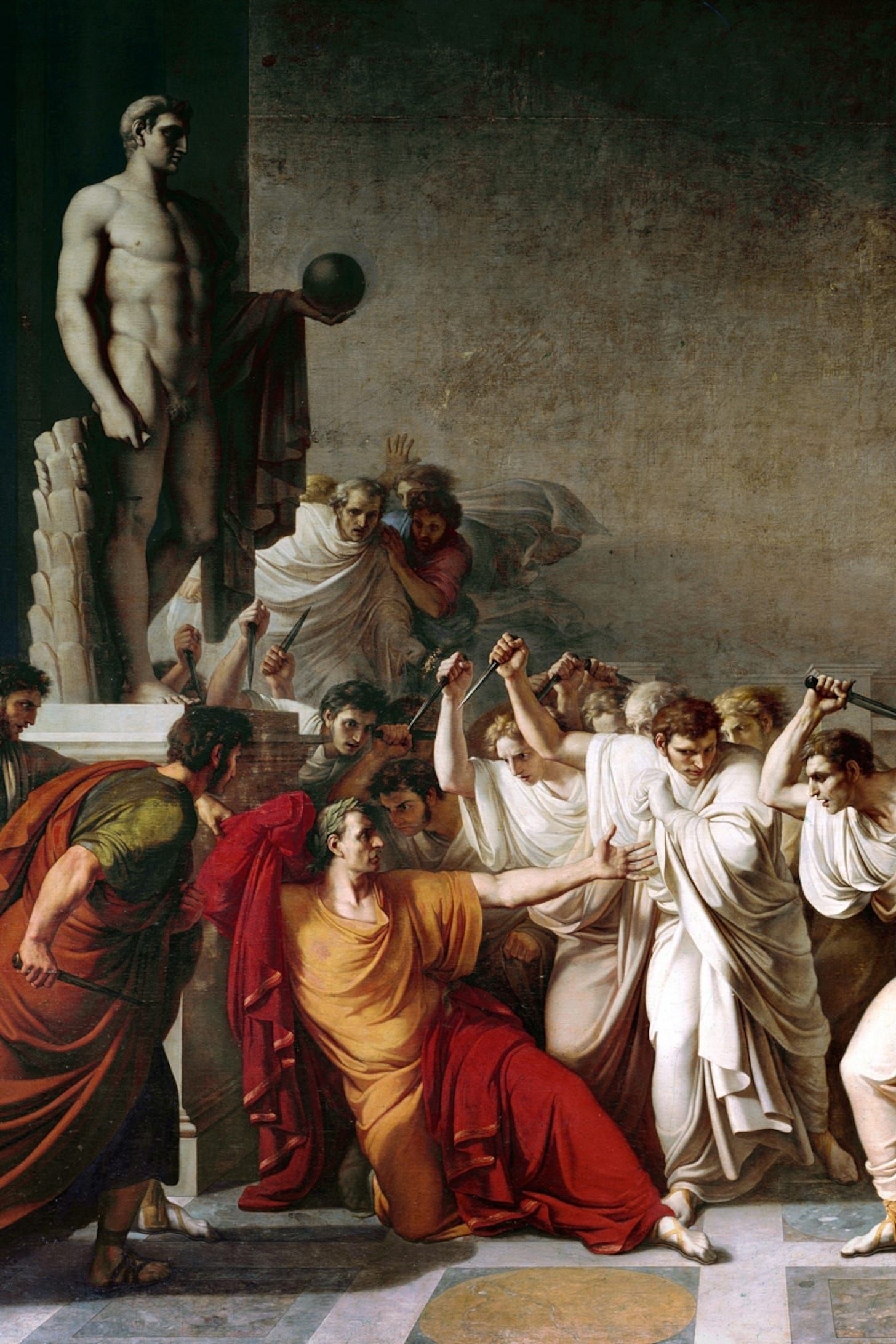Sam Altman Sacked as OpenAI CEO: The Board 'Executes' a Coup
We unravel the ChatGPT modern whodunnit, steeped in the realm of AI.
“There’s no art/ To find the mind’s construction in the face./He was a gentleman on whom I built/ An absolute trust.”
King Duncan, in Shakespeare’s Macbeth
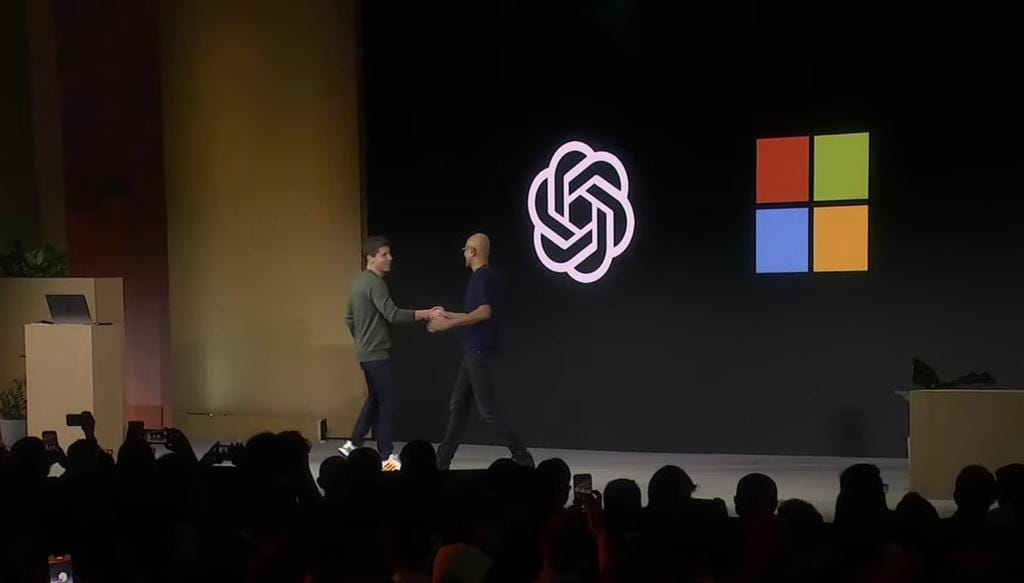
Initial Shockwaves: The Unexpected Ouster of Sam Altman
The sudden and unceremonious sacking of Sam Altman, a highly regarded “demigod” in the realm of AI, from his CEO position at OpenAI, not only sent shockwaves through Silicon Valley but also caused worldwide tremors. This development, marked by initial disbelief and confusion, plunged the tech community into a state of "shock and awe." The news was particularly a jolt for Altman and co-founder Greg Brockman, who was also the Chairman of the Board.
As the initial shock begins to fade, it is imperative to delve into the potential causes and consequences of this dramatic event. This surprising turn has undoubtedly sparked widespread speculation and curiosity, emphasizing the need for a thorough and impartial analysis, based on publicly available information, of its wider implications.
Beyond the Surface: The Deeper Implications of Altman’s Firing
Altman's departure from OpenAI, ostensibly due to a loss of confidence by the Board, hints at deeper complexities within the organization. The lack of detailed explanations from both Altman and the Board has led to speculation about the true reasons behind this significant decision. This ambiguity is particularly striking considering Altman's notable success and the acclaim he has brought to OpenAI, especially in the last year.
The official statements from OpenAI and public communications from Altman and co-founder Greg Brockman do little to shed light on the situation. Adding to the intrigue are Microsoft CEO Satya Nadella's comments, which, while positive about OpenAI's future and supportive of the Albanian-born interim CEO Mira Murati, noticeably omit any mention of Altman. This silence speaks volumes, suggesting a more complex set of factors and dynamics at play than initially apparent. These subtleties reveal a multifaceted narrative behind Altman's ouster, one that goes beyond the superficial reasons presented and delves into the intricate workings of the organization's internal politics.
OpenAI's Vision, Struggles, and Power Dynamics
OpenAI, initially founded as a non-profit to counterbalance Silicon Valley's profit-driven tech giants, has faced challenges aligning its high ideals with commercial realities. Supported by luminaries like Elon Musk and Peter Thiel, its mission extended beyond market competition, aiming to influence the global populace and governments and shape the planet's destiny. However, this ambitious vision has encountered practical hurdles, especially in balancing its non-profit ethos with necessary commercial activities for growth and sustainability. This tension raises critical questions about OpenAI's operational philosophy and the feasibility of its founding principles in the competitive world of AI.
Furthermore, internal dynamics at OpenAI have revealed a significant clash between CEO Sam Altman’s drive for commercialization and Chief Scientist Ilya Sutskever’s focus on safety and ethics, suggesting deep-seated ideological rifts. Highlighted by reputed publications like The Washington Post, this conflict isn't just a simple disagreement but represents a fundamental division in vision and strategy. The board's failure to bridge these differences underscores the depth of these ideological divides, touching upon the organization's core values and future trajectory.
The recent discord at OpenAI underscores a wider debate in the tech industry about the delicate balance between growth and ethical considerations in AI development. This situation exemplifies the complexities organizations face in this sector, where the pursuit of technological advancement and commercial success must be judiciously balanced against the imperatives of ethical AI development and its potential risks. This equilibrium is vital for organizations like OpenAI as they navigate the rapidly evolving landscape of artificial intelligence, endeavoring to uphold their founding principles while adapting to the demands of a swiftly progressing field. Adding to these complexities, OpenAI's ChatGPT recently experienced a significant outage, initially attributed by Altman to increased demand from new feature deployments, but later identified as resulting from a DDoS attack. This incident further highlights the challenges and unpredictability inherent in managing advanced AI platforms in an ever-changing technological environment.
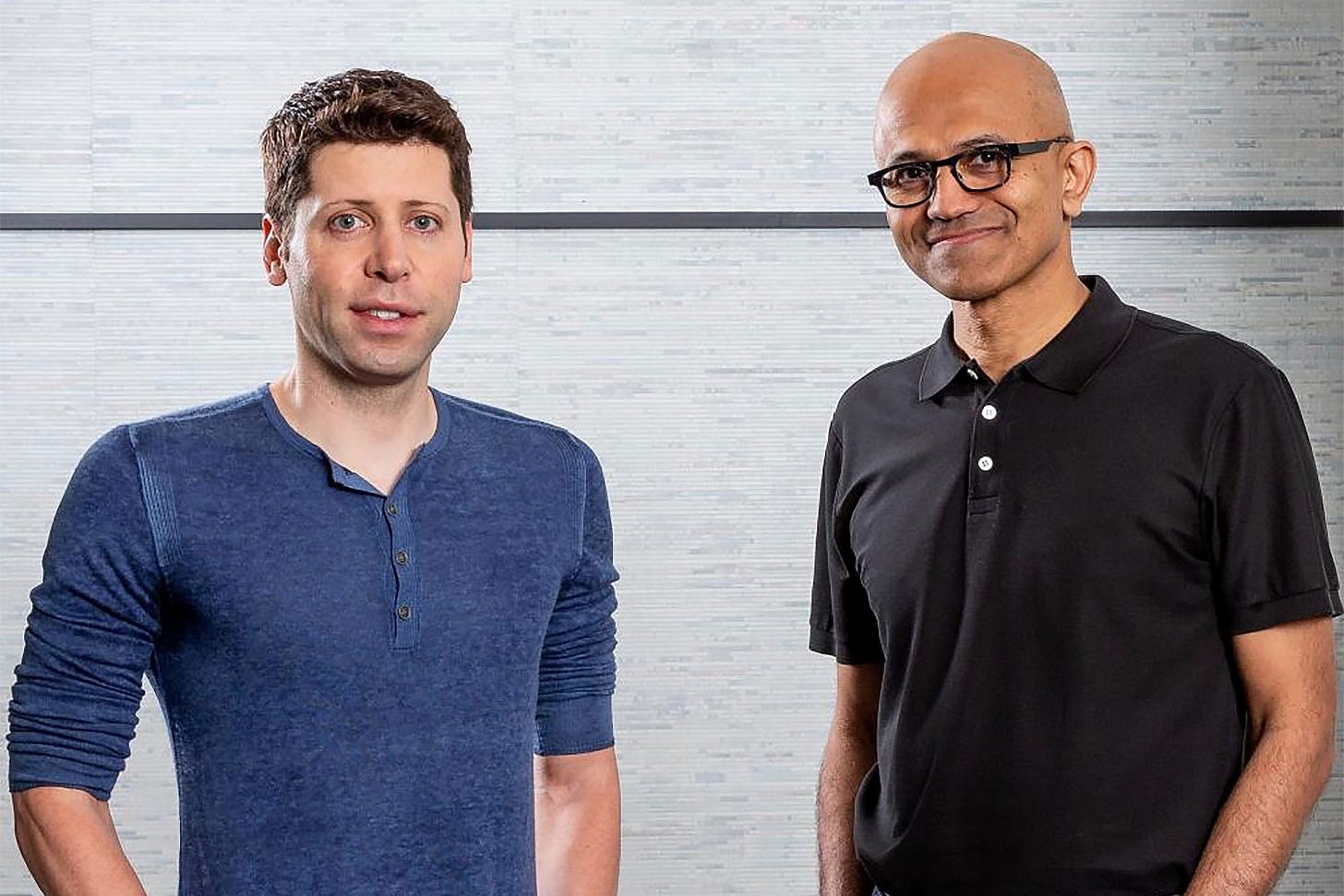
Microsoft’s Strategic Influence and Governance Dynamics in OpenAI
Microsoft's substantial $10 billion investment in OpenAI has notably expanded its influence within the organization, despite not translating to a traditional 49% equity stake. This financial involvement, granting Microsoft up to 75% of OpenAI's profits until the investment is recouped, raises questions about OpenAI's autonomy and its future strategic direction. The investment's impact could notably shape OpenAI's commercial ventures and technological deployments. Microsoft's integration of OpenAI technology into Bing, a move that could make Bing a strong rival to Google's AI-powered search engine, underscores this influence. This integration not only enhances Bing's position in the market but also signifies a shift in the search engine industry, highlighting the increasing importance of AI in shaping internet search and information processing.
Simultaneously, the dynamics of Microsoft's role in OpenAI are further complicated by the absence of its formal representation on OpenAI's board, presenting a challenge to traditional investor-board dynamics. This atypical governance model, as reflected in Satya Nadella's responses to the recent leadership shift – particularly his omission of any mention of Sam Altman – suggests evolving strategies and power dynamics within OpenAI. This indicates Microsoft's approach of balancing OpenAI's operational independence with strategic distance, especially in light of recent contentious leadership changes. This scenario reshapes the conventional understanding of corporate governance and investor relations in the AI sector, highlighting the intricate and complex balance of influence and autonomy in an ever-evolving tech landscape.
AI’s Global Race: The Emerging AI Landscape and OpenAI's Role
Despite internal leadership upheavals, OpenAI continues as a formidable player in the global AI landscape, challenging industry giants like Meta, Google, and Microsoft. Innovators such as Sam Altman, with his pivotal development of ChatGPT, and Emad Mostaque of Stable Diffusion, have significantly disrupted the AI space. Altman, a 33-year-old visionary entrepreneur, has elevated ChatGPT to global fame, likened to "Aladdin’s lamp" for its broad AI capabilities, upending established tech hierarchies and setting new standards in AI innovation and user interaction. This transformation, driven by Altman and figures like Emad, illustrates the immense potential of AI in reshaping our interaction with technology, surpassing traditional tech dominances and showcasing the vital role of emerging players and technologies in the continuously evolving and competitive AI sector.
Regulatory Landscape: Recent Developments and Government Responses
The AI sector's rapid evolution has driven significant changes in the regulatory landscape, notably highlighted by Sam Altman's congressional testimony, which escalated government attention on AI. This focus signifies a growing consensus on the need for regulatory oversight, acknowledging AI's innovative potential alongside its risks. President Joe Biden's swift issuance of an Executive Order on AI regulation on October 31, backed by Silicon Valley's major tech companies, marks a critical U.S. effort to establish AI development and deployment guidelines, aligning with global trends towards a structured regulatory framework. Furthermore, the UK AI Peace Summit, led by Prime Minister Rishi Sunak and held shortly after Biden's directive, saw 28 countries, including the USA, China, and India, signing an international agreement, symbolizing a global commitment to ethically aligned AI development. These steps, both in the U.S. and internationally, illustrate a unified understanding among world leaders and technology firms of the necessity to regulate AI, aiming to harmonize its transformative impact with ethical considerations and societal welfare, and signaling a pivotal phase in directing AI's future towards a more responsible and beneficial trajectory for society.
A Modern-Day Coup: Drawing Parallels with Shakespeare’s Dramas
The recent leadership changes at OpenAI, echoing the essence of a Shakespearean drama, are filled with complex power plays and shifting loyalties, much like the political intrigue of historical epics. This speculative parallel effectively captures OpenAI's current situation, mirroring the tumultuous themes of betrayal, ambition, and political maneuvering reminiscent of Shakespeare's "Julius Caesar." These intricate and dramatic developments within OpenAI, while not focused on identifying specific protagonists or conspirators like “yond Cassius”, reflect the grandeur and complexity of Roman history, with an ongoing narrative and indeterminate outcomes. Beyond mere corporate power struggles, these changes in OpenAI highlight the broader challenges and implications of leading a dynamic organization in the AI sector. As observers, our role is to delve into the deeper dynamics and understand the potential consequences these shifts entail for OpenAI and the broader AI industry, providing a nuanced view of the significant transformations within a leading entity in AI research and development. This perspective offers a comprehensive understanding of the evolving AI landscape, marked by complexity and significant change.
The Opaque Process of Leadership Change
The recent departures of Sam Altman and Greg Brockman from OpenAI's board have spotlighted the organization's decision-making processes, triggering questions about transparency, inclusivity, and governance dynamics. The crux of the debate lies in the nature of directorial appointments and the actual independence of the board members, with the seeming exclusion of Altman and Brockman from key decisions suggesting a consolidation of roles and raising concerns about fairness and governance standards. This scenario underscores the challenges that innovative and rapidly growing organizations like OpenAI face in adhering to traditional governance norms. The absence of key figures in vital decision-making processes deepens the intrigue and calls for a more thorough examination of the internal dynamics and power structures. These developments at OpenAI are emblematic of the broader challenges encountered in steering pioneering ventures in the rapidly evolving AI industry, highlighting the delicate balance between swift technological advancement and the maintenance of robust, transparent governance.
Conspiracy or Strategy?: Theories Around Altman’s Firing
The departure of Sam Altman from OpenAI has unleashed a wave of speculative theories, notably one suggesting an orchestrated move to initiate a transition from non-profit to a for-profit model, potentially redefining OpenAI's structure and objectives. This conjecture, bordering on conspiratorial and fueled by speculations from tech outlets like The Verge, implies that Altman's exit might be part of a broader, stage-managed strategy, possibly paving the way for his return under a new operational framework. Such a shift would not only signify a major reorientation of OpenAI's mission but also bring with it complex legal and financial challenges, including retrospective taxation and significant penalties, underscoring the complexities of executing this transformation. This narrative adds intrigue to OpenAI's leadership dynamics and stimulates wider debate about its future path amidst the rapid progress and escalating commercial interests in AI. While these speculations remain unconfirmed, they highlight the dynamic and unpredictable nature of the tech sector, where strategic shifts can profoundly impact organizational structures and global influence, emphasizing the need for adaptability and foresight in the constantly evolving tech and AI landscape.
The Musk Factor: Potential Future Endeavors and Industry Impact
Elon Musk's potential return to the AI industry, in collaboration with Sam Altman and Greg Brockman, could significantly reshape its landscape. Musk's dissatisfaction with OpenAI's current direction, diverging from its founding principles, points to a possible rift between his vision for AI and the path OpenAI is taking. Considering Musk's pivotal role in OpenAI's genesis, this discontent may propel him toward new AI ventures with Altman and Brockman, both of whom have recently departed from OpenAI's board. An alliance between Musk's innovative prowess and the expertise of Altman and Brockman could create a powerful force in AI, poised to challenge established norms and set new benchmarks.
Musk's history of disruptive innovation suggests that his re-engagement could bring revolutionary approaches to AI, potentially reshaping industry standards. His involvement in new AI projects, particularly with his caution about unregulated AI posing an existential threat to humanity, could introduce a new paradigm of development. This model would balance innovation with ethical considerations, emphasizing the need for responsible AI development. Far from a minor shift, Musk's potential influence could signal a substantial realignment in AI's trajectory, adding a crucial dimension to the field's future. This scenario could lead to transformative changes in AI, driven by key figures who recognize the profound impact of AI on society and the importance of steering its development towards safe and beneficial outcomes.
The Journey from 'Curse' to 'Boon' Through Open-Source Collaboration
In the rapidly evolving realm of AI, the push for OpenAI to make ChatGPT4's code open-source echoes a global demand for greater transparency and inclusivity in AI development, transcending mere access to advanced technology to truly democratize AI. This burgeoning movement seeks to broaden participation, enabling a diverse array of developers and innovators to actively contribute to and benefit from AI's progress. Moving from theoretical discussions to actionable steps, open-sourcing ChatGPT4 is poised to ignite innovation and foster widespread collaboration within the global tech community. This significant shift towards open-source practices in AI is expected to yield a more equitable distribution of AI benefits, ensuring diverse voices and experiences shape AI’s evolution, thereby fostering a more inclusive, creative, and ethically responsible development landscape.
In this era of rapid AI advancement and significant ethical contemplation, the spotlight on open-source AI is pivotal, offering a pathway to transform the industry from a precarious 'curse' into a promising 'boon'. As influential figures like Sam Altman and Elon Musk continue to pioneer in AI, with Big Bros Google, Meta and Microsoft looming in the background, the growing emphasis on open-source models heralds a shift towards a more community-driven approach in shaping AI's future. This transition, supported by balanced and thoughtful government regulation, has the potential to redefine the famous Chinese adage, “May you live in interesting times,” from a foreboding curse into an optimistic blessing. The anticipated decision to open-source ChatGPT4 stands as a critical milestone in this journey, signifying a commitment to an AI future where technology not only captivates but also contributes positively to the collective well-being, collaboratively developed and shared by a global community.
.

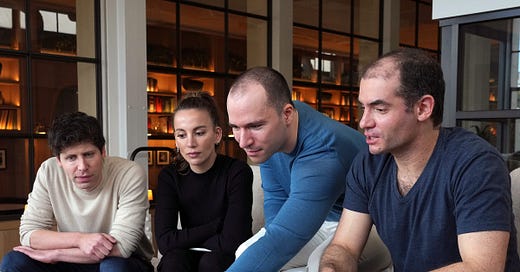



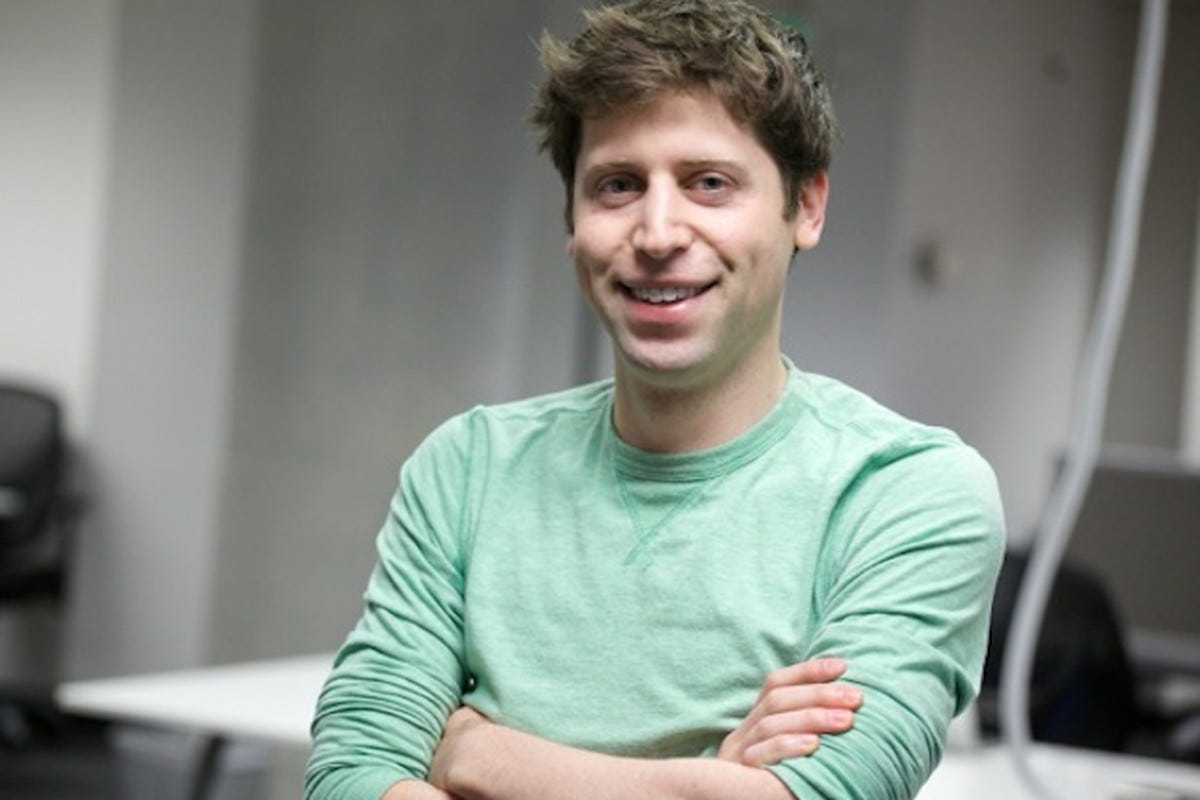

![领英上的Ray (Kuanwei) Lu: [一場本週必看的TED:高中學歷的OpenAI董事長Greg Brockman] 有看過我先前寫的文章的朋友,一定看過OpenAI… 领英上的Ray (Kuanwei) Lu: [一場本週必看的TED:高中學歷的OpenAI董事長Greg Brockman] 有看過我先前寫的文章的朋友,一定看過OpenAI…](https://substackcdn.com/image/fetch/$s_!9MU4!,w_1456,c_limit,f_auto,q_auto:good,fl_progressive:steep/https%3A%2F%2Fsubstack-post-media.s3.amazonaws.com%2Fpublic%2Fimages%2F5098e4b0-bfbb-4752-ae4a-c383ce1e7715_800x961.jpeg)
